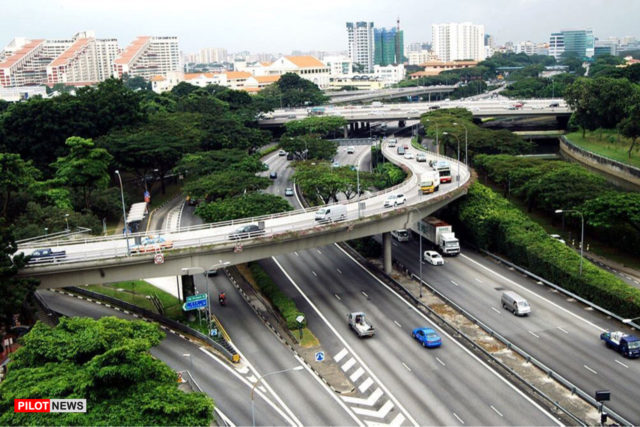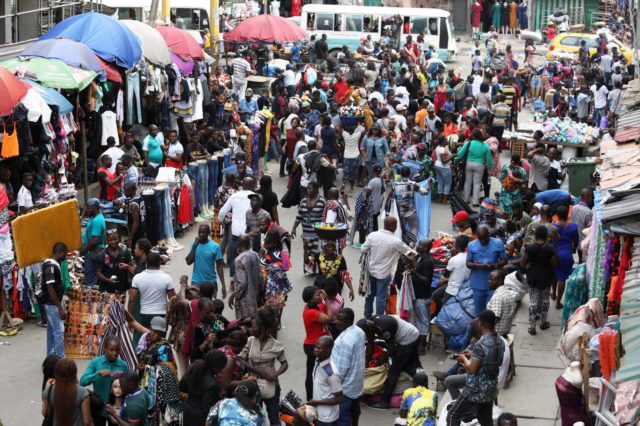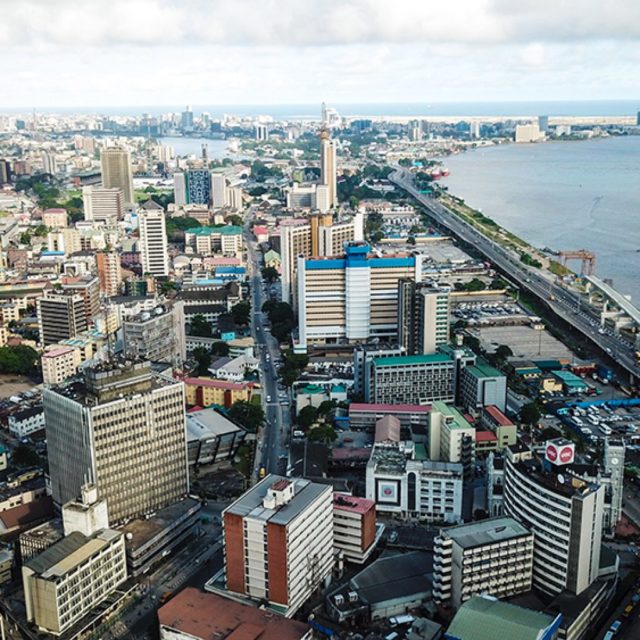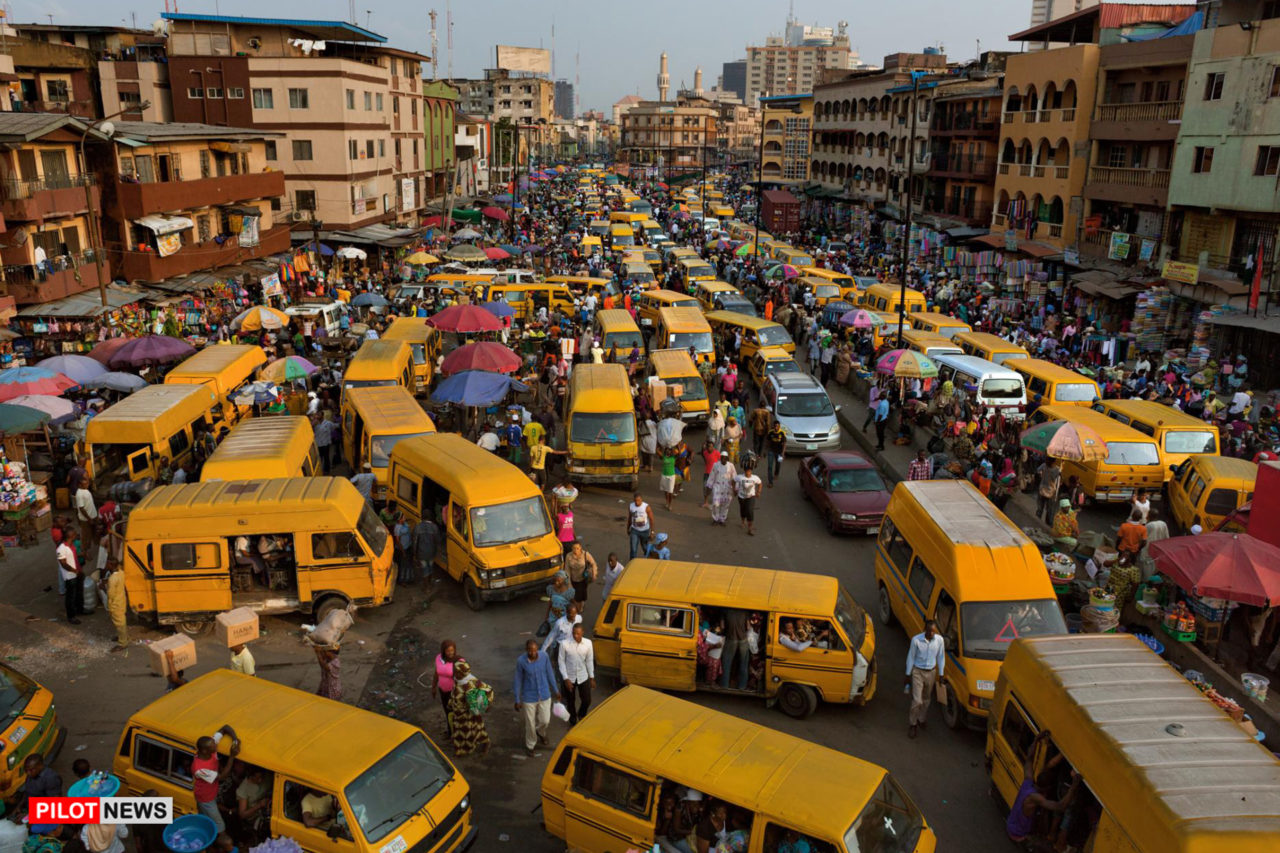After five weeks of Covid-19 induced lockdown imposed by the Federal Government, on May 4, people will gradually return to normal lives in Lagos, Ogun, and Abuja, although there are restrictions in place aimed at curtailing the spread of the infection. For many, the post-lockdown measures in Lagos and what life was pre-Covid-19 in the state mean that hard times are approaching, Adeola Oladipupo reports.
With over 20 million people, Lagos was a bee-hive of commercial and social activities before Covid-19. Close to the Atlantic ocean, the two ports in the state process 70% of imports to the country, according to Stears Business. The state is one of the major destinations for traders from other parts of the country. Lagos and six other states control ninety percent of cash transactions in the country, according to the Central Bank of Nigeria.
Like many commercial hubs across the world that had to be shut down in the wake of the Covid-19 pandemic, Lagos economy was grounded to a halt for five weeks to curtail the spread of the viral infection.

To curb the spread of the disease in Lagos which has recorded over 1000 cases – highest in the country — the state government announced post-lockdown measures for movement and re-opening of businesses, including dusk to dawn curfew, compulsory use of face masks, reducing the number of passengers per trip for commercial transport and reducing operation time for businesses, markets and malls to six hours – 9 am to 3 pm.
“Working for 6 hours is too short to achieve a whole lot that I would on a normal day when I get to work at 7 am and close at 4 pm,” said Tosin, a PR Executive in Lagos. “But now, assuming I get to work at 9 am and close at 3 pm, I will still have some pending things to do. So it is more like we are just going out and not reaching the height of productivity.
For many residents of Lagos, the post-lockdown measures will make survival more difficult than they already are.
In Ikorodu, a suburb of Lagos, Mama B sells alcoholic drinks and other beverages at one of the bus parks. Her husband left her and five children some years ago. One of the children attends a public secondary school and was about writing her final examination before it was postponed due to COVID-19.
“For my business, that time limit will not work,” Mama B told the West African Pilot News at her residence. “I bring my goods out in the evening because it is time I make more profit. I can’t display my goods by the roadside in the afternoon because of the task force officials.”

“If the government would not feed me, they should at least not prevent me from surviving,” she said.
Like Mama B, many small business owners in the informal sector whose operation time is not within those stipulated by the government would struggle.
“There are some businesses in the informal sector whose nature requires that they operate within a certain time of the day. It could be early in the morning, evening, or late in the night,” said Omolola Amao, a Credit Officer at a microfinance bank in Lagos. “Most of these small businesses run on loans they collected from us which they must pay.”
“My fear is that many of them will default in paying back loans if the measures affect their businesses,” Miss. Amao said.
The post-Covid-19 measure would also affect how many people commute in Lagos. In addition to ordering commercial transporters to not exceed 60 percent of their vehicle capacity, the government said commercial and commuter operations should be between 6 am and 7 pm.
The Lagos Commissioner for Transportation, Dr. Frederic Oladeinde said the Bus Rapid Transit and Lagos Bus Service should not convey more than 21 passengers. Each bus normally transports at least seventy passengers.

“In the same vein, yellow buses, popularly called ‘Danfo’ must not carry more than eight passengers (two on a row), tricycles are to carry just two passengers at the back, while private car owners must also observe the physical distancing,” Mr. Oladeinde stated.
In 2019, Dr. Oladeinde said 1.6 million vehicles ply Lagos roads daily, while 75,000 commercial ‘Danfo’ buses in Lagos transported 10,000 public passengers per day and 12,000 public transport trips are generated daily.
With the lockdown being relaxed, many residents are yearning to get back to work. A huge problem in Lagos, transportation, could return. The curfew which would ensure everyone gets on the road at the same time and return home at the same could make things worse.
“So I get on the road and the whole Lagos is trying to move at the same time so that they can beat the curfew so that they don’t get arrested, the traffic gridlock would be something else,” Tosin said.
She said working remotely is not an easy option because of poor infrastructure and possible distractions.
Commuters in Lagos spend an average of 30 hours on traffic weekly, according to research by JCDacaux Grace Lake Nigeria. Living in Lagos, the third most stressful city in the world can take a mental toll, according to CNN.
Now, with the post-lockdown measures, moving around Lagos will also take a toll on the finances of residents who will have to confront the imminent consequences of contraction of the economy caused by COVID-19. There are concerns that transport fare may be hiked.
“It will be meaningless to transport two people per trip,” John Udeh, a tricycle operator in one of the suburbs of Lagos, told WAP News. “I will end up wasting fuel and unable to make my weekly payment to the owner of the tricycle.”
While authorities are determined to do whatever is necessary to curb the spread of COVID-19, there are worries that the government’s policies would leave many people in the worst situations. Ordinary people who just want to survive could end up becoming the casualties in the war against the viral infection.
“I am just praying this coro (coronavirus) goes back to where it came from fast, because the government does not care about us,” Udeh said.
- PHOTOS: After 48 Days in Hospital, Boy Labelled Witch and Abandoned is Discharged - August 8, 2021
- Travellers Complain Over Fly Infested Aminu Kano Airport - August 6, 2021
- Ondo 2020: Mimiko Criticises Akeredolu’s Performance - September 28, 2020


